I graduated from University in 1997 as a primary school teacher and headed straight for the worst area in London to teach for 2 years. (listen to that story on our podcast)
Since then I’ve mostly taught children that have come from disadvantaged circumstances in North Carolina, Dublin, and Bangkok.
Except for my two years teaching on the North Shore of Sydney, where I taught children such as the son of the head of Sony Music Australia, and the son of the Director of AMP. That was pretty bliss (although not without issues.)
I thought I’d be right on top of teaching my own child on this great Australian road trip. Hmmm.
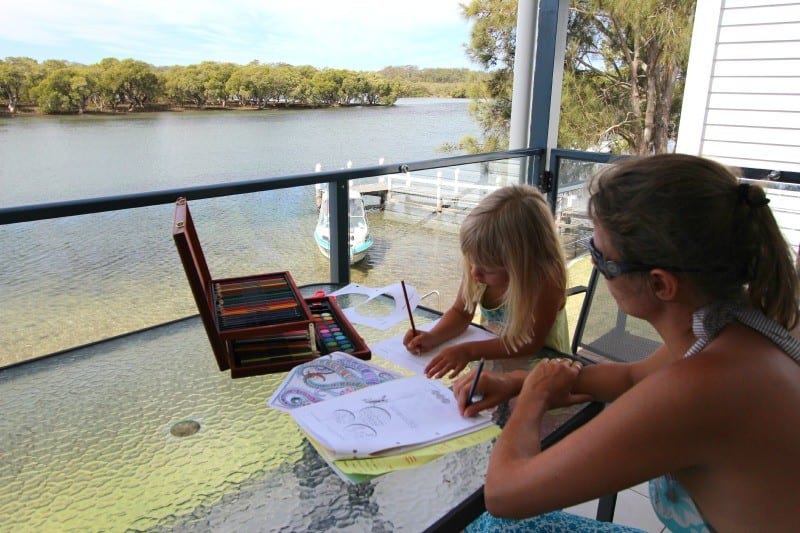
I’ve heard it said many times, you can’t teach your own kids. It’s a completely different experience. Yep. Give me a class of 30 challenging kids any day. (Well maybe not really!)
We’re starting to find our groove and when it flows right, I do really love teaching my own child.
Read more: My teaching experiences overseas
We’ll be regularly sharing our experience for the next 12 months, but for now, here are a few tips.
UPDATE: I’ve now been homeschooling for seven years. This post focuses mostly on homeschooling and distance education in Australia. If you are form the US, you will like this post on roadschooling in the US. Tips int ehre as well from any one in the world looking to homeschool – it’s quite universal. And we just finished this podcast on homeschooling)
Homeschooling vs. Distance Education
When you travel with your kids, you have two homeschooling options (well at least in Australia). There are a lot of factors to consider and it all depends on your personal circumstances and preferences. There is no right or wrong way.
What is homeschooling?
Homeschooling is when the responsibility for learning is placed upon the parents. Parents have to make sure they are checking off objectives and outcomes for their child’s stage of learning.
You have to plan, implement, and evaluate and then report that to the authorities. I don’t know much beyond that, but you can check out more information here.
What is distance education?
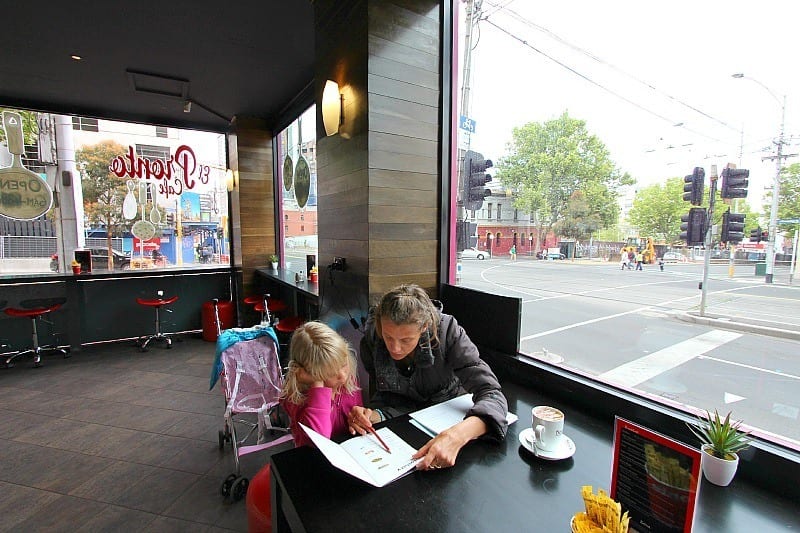
There are many children in Australia who live in remote areas, miles from the nearest school. Distance Education, or School of the Air as it was once known, was created to cater to their schooling needs.
Lessons were sent by mail and teachers teach the students over radio. These schools still operate, and if you are traveling, this is, by law, your only option. We considered homeschooling, but couldn’t because we would not have a permanent residence.
For distance education, you enroll in a school (our school is Sydney Distance Education – SDEPS) and they send you two weeks worth of lessons at a time, with all required resources.
There are instructions and marking guides, so we just implement (my dream teaching job). Everything is aligned to the traditional schooling curriculum and students are assigned a teacher. They correspond with the teacher via Skype, phone or email. We also connect with Kalyra’s class and teacher through an online community portal.
Why we chose, and like, distance education
- We had no choice, it’s the law because of our traveling circumstances. I’m guessing you could work around these laws, but we did not want to take the risk. The last thing we want is the hassle of dealing with the government and the law.
- I’m not a great supporter of the education system, but I do believe in a certain structure to learning. The curriculum in the essential areas like reading and maths, sometimes science, is pretty on-point. We certainly won’t be homeschooling forever and I don’t want Kalyra to fall behind. Distance-ed ensures she’s checking off the boxes.
- I need accountability. It’s hard enough for me to stay on task with the schooling work as it is with distance education. It would be far too easy for me to put off the focused learning activities to just let the kids play and explore freely. This does have very positive points, but there needs to be a balance and I don’t think it’s fair for my laziness and non-chalance to interrupt my child’s learning. Other parents may be more disciplined than me.
- I’ve spent 15 years researching, planning and preparing for lessons covering all subjects. I left teaching because I hated it and I was tired. I can’t bear the thought of having this responsibility for my own child. My patience for teaching her is already really thin, just because of the previous life I lived. I LOVE that someone else has created all the units of work and I just get to do what I love – facilitate learning.
- I don’t have time to be a homeschooling parent. It takes a lot of time to plan activities that align with the curriculum. Plus, you have to find the materials and ensure that its curriculum and individual needs aligned. Just give it to me. Tell me what I have to do, give me the materials and let me do it.
- With distance education, Kalyra still gets to have a teacher and feel like she’s involved in a classroom. Just yesterday we were in her virtual classroom learning about classmates in Poland and others traveling around Australia like she is. Kalyra loved school so this is as close as we can get to giving her a small ownership in it.
The GOOD of distance education
Some of these are positives of homeschooling too.
- The structure (positive parts of it) of traditional learning is still present.
- I know she is checking off all curriculum boxes and won’t fall behind.
- There’s a lot of flexibility with how we organize our day.
- There’s so much room for life learning.
- It’s far more targeted to her needs.
- One-on-one teaching means it takes 1/5 of the time to complete a lesson.
- They supply you with all the lessons and materials. It’s super easy to implement. Kalyra gets cool videos and audios to listen to with supported examples of what she’s learning or teacher direction.
- We can work around her energy levels and moods. If we see she is too tired or her mental space is not conducive to learning we just put it away and come back at a better time. You can never do that in a classroom. What’s the point if their beautiful brains just aren’t open to receiving at that time?
The BAD of distance education
- It’s still about checking off boxes and much of the learning is irrelevant. I get immensely frustrated when I HAVE to do a lesson with Kalyra, despite knowing how pointless it is. I get frustrated with the education system for wasting my daughter’s time filling her head with cloud labels like cumulonimbus and altostratus instead of teaching her to use her five senses to know when rain is coming, how to make a decision, how to get along with others, how to manage money, find peace within herself so she can manage uncertainty. You get my drift and you can see where this rant is going!
- I’ve not experienced homeschooling, but they say there is more work for the child to do with distance education. I’m not sure. I think there is possibly less for the parents, but it depends how focused you intend to be with your kids for homeschooling. I don’t think it takes up to much time and you have that comfort of knowing their educational needs are looked after.
- This is a little more pressure in making sure things are done and sent in on time. You have to be more vigilant.
- This is actually also a good one, depends on how you look at it. There is no space for your child to not finish tasks. This might seem a little crazy, but the expectation is a little higher in distance education. In the traditional classroom, due to time constraints, it’s challenging to get every child to finish every activity. This can lead to all sorts of consequences like extra homework, or missing out on play time to finish it. OR, it can be just left undone. Kalyra is actually doing more than most children in school because I ensure every activity is finished. This is a huge plus for her as it means she really is checking off all the boxes, but at the same time she has no space for rest or even sick days. Everyone needs a good sick day, right? (Homeschooling parents do at least!)
How we approach home schooling and distance education
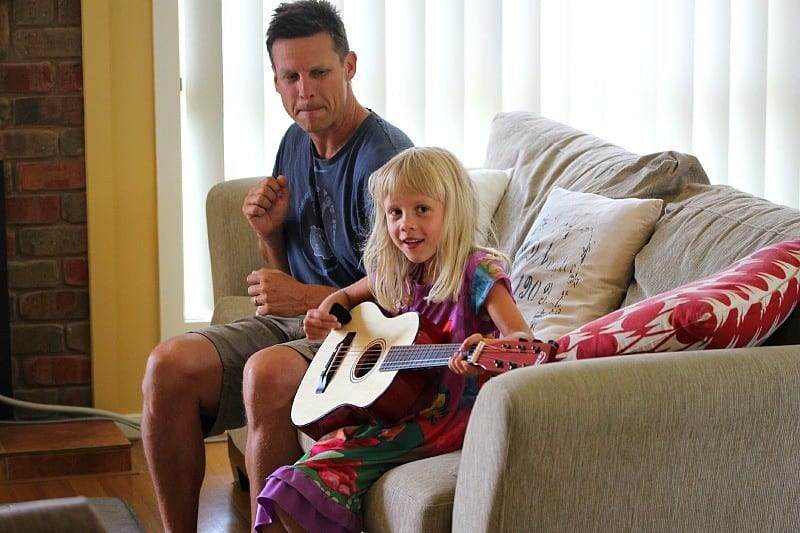
- We’re very flexible in how we approach distance education. They say you should be doing 4 hours a day, 5 days a week. We usually do 1-2 hours every day so we can allow for exploration days (where the best learning happens).
- If I think the activity is just a checking-off-box waste of time, we’ll just check off the box. (shh don’t tell her teacher!!) No we truly do most things.
- We try to do maths and reading in the morning for 1-2 hours and then incorporate the other key learning areas into our day the best we can.
- Kalyra is super smart and quite advanced so we can move through the work at a quicker pace. She usually finishes the 2 weeks of work before the time is up. I move straight into the next 2 weeks so we can add in more flexibility should we get a busy day or two ahead.
8 challenges of distance education
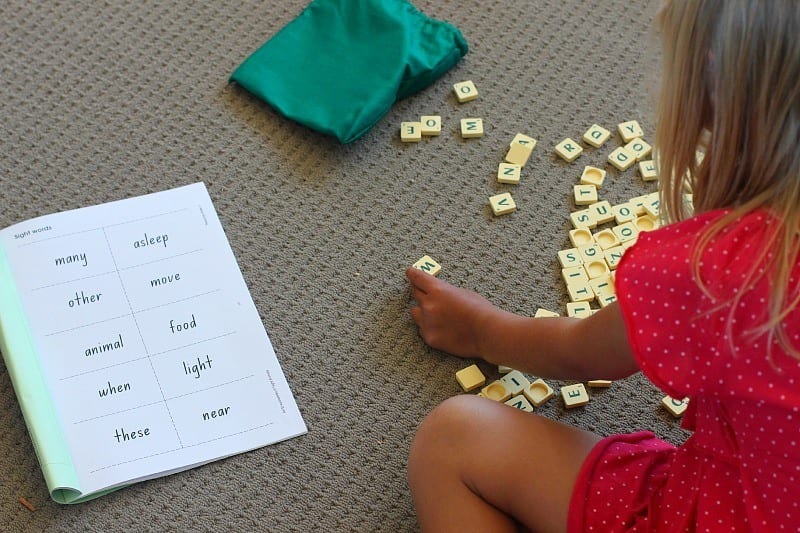
- You do have to be accountable, so as much as you want to just ride your bike and go exploring each day, you can’t. You have to schedule distance education in. It’s the best thing for your child so, no matter how tired you are, you’ve got to do it. This means saying no to many activities you might want to do.
- Teaching takes up a lot of your mental energy. I’m ready to send her back to school most days because I can’t be bothered. (I do deal with a lot of ex-teacher exhaustion syndrome – hands up if you know what I’m talking about?!)
- There’s no principal to send her to when you have no strength left.
- Kalyra knows she has a lot more freedom and flexibility so will manipulate and push buttons.
- Teaching your children presents them in a different light to you. Sometimes that ain’t pretty. I don’t like being privy to that information-she’s my angel remember! LOL. It just presents a new dimension to parenting that you otherwise wouldn’t have had to deal with.
- Teaching your children sometimes presents yourself in a different light that you don’t like! I’m certainly aware of a few more of my character traits that need improving. Patience and compassion are two of them.
- She’s not in a regular classroom with her friends. There’s not much we can do about this, but it bothers us, and her.
- I know Kalyra wouldn’t dare act defiant and unruly with her classroom teacher, but she does with me. This is difficult, often heartbreaking, and can add a strain to family life.
12 Tips for distance education on a road trip
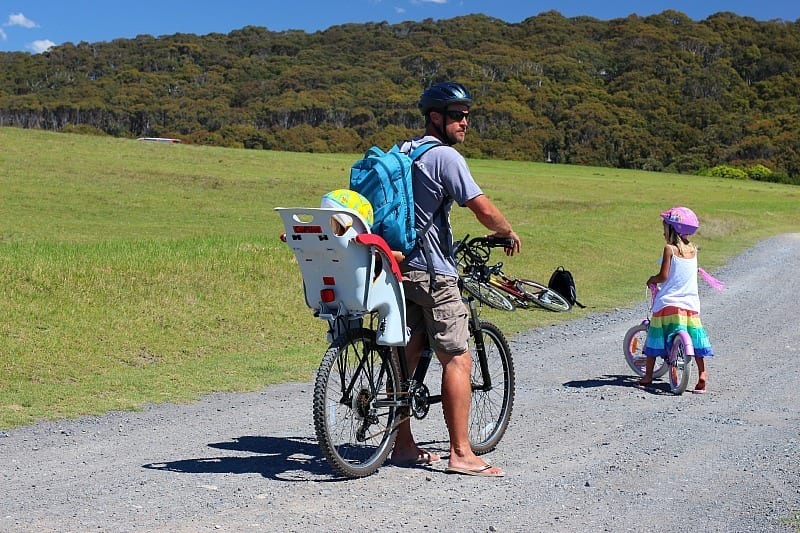
- The most essential thing is that children are absorbing the world around them, following their curiosities, asking questions and learning from everyday experiences. Traveling checks off all of these boxes. As long as you are incorporating this into your daily life, your child will be fine.
- Reading is essential. You need to schedule this in daily. Put traveling with kids aside, every parent needs to read with their child every single night from the day they are born. Trust me, it’s the biggest educational gift you can give them.
- Pull learning into all your experiences. We get our daily dose of PE with bike rides, long walks and kicking the ball around. We investigate rock pools, visit interactive historical sites like Port Arthur, the Female Factory and Sarah Island. Kalyra knows far more about convict history from visiting these places then she ever would at school. We learn how to appreciate art at places like MONA, interact and enjoy plays, and have first hand animal experiences like the penguin parade at Phillip Island. We practice maths language and skills with everyday activities and encourage Kalyra to read all the signs etc that we see out and about.
- Follow their passions. Kalyra has a flair for fashion. She’s been advising me on outfits since she was two. We brought her a barbie fashion designer book. She creates her own outfits. It’s a fun passion activity for her and helps her to think about line, size, shape, colour and texture. She’s also developing higher order thinking skills of analyzing, and evaluating. We also bought both girls a guitar. Kalyra is now writing her own songs and fills the campsite with relaxing music of an evening.
- As long as you target the very specific key learning areas and skills essential for a child’s ability to participate effectively in society, then don’t worry too much about the other pointless tasks. Just check off the boxes.
- Allow ample opportunities for your children to practice talking and listening. Just this week, Kalyra has been practicing ordering and paying for things herself. Her confidence is growing and I am ordered to stand way back while she takes care of it. (I think it’s just because she wants to pocket the change. She thinks the whole exchange is so magical because she buys something yet gets money back. I don’t want to shatter the mystique for her yet by explaining she’s actually getting less back.)
- It’s not what your children learn and memorize, it’s about how they learn. Teach them how to think for themselves, how to solve problems, how to investigate and follow their passions and curiosities. Teach them how to use their manners, respect others, be kind and make effective decisions.
- Most essential learnings should be done in the morning when the brain is most alert i.e reading and maths
- Break the learning up. 30-40mins focused task, followed by a break.
- Make it a joint parent teaching effort. Kalyra likes to have Craig teach her as well so we share the duties. And when it gets too much for me, I pass it over to Craig to take care of.
- Give them benchmarks to work towards. I can’t believe I have to put a behaviour plan in place for my own child, but I’ve given in to the fact that it’s best if I do. Kalyra really is an achiever – part of our butting heads, is that she doesn’t like any kind of feedback as she likes to do it herself or wants it to be perfect. It’s so difficult to manage and help her to understand that mistakes are a part of learning and its just part of the process of improving. So benchmarks – work through with your child what they need to work towards and set stepping stone goals. Come up with an evaluation system after they’ve finished each task. Ask them to grade themselves and you share your thoughts and why. Kalyra got a B- the other day. I explained that the B meant she did really good, but has room for improvement. The minus was for the semi-defiant meltdown she had, which she managed to control herself. She was happy with that, felt supported and understood what to do next time. She likes this system as it appeals to her need to achieve and work towards something + take a little bit of ownership.
- Choose reward systems wisely. I’m not overly enthusiastic about extrinsic rewards, as it’s not teaching them to love and work for success inside out. Focus on the good feelings it brings. This is hard to do with kids, but really practice it as it will soon become a normal pattern for them. If need be, have a reward for the entire week’s progress rather than each day. You know your child though, so if a daily reward works better do that. An easy one, is to give stickers for each completed task or benchmark that you set together, and then once x amount of stickers have been collected, they can get X reward (that they helped you create). Please don’t make it sweets. Good work needs to be rewarded with things that are good for you like: extra time with Mum and Dad, a favourite book to read, or a trip to the library (Kalyra loves this).
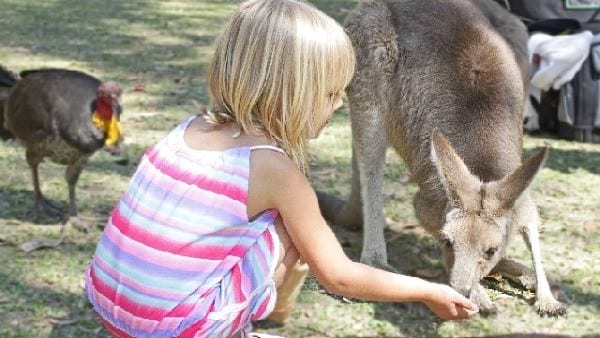
Homeschooling Resources we use

Much of the best learning happens by interacting in the world around us.
Having said that, technology presents amazing opportunities for learning. Kids lap up the games and concepts without realizing they’re learning. I suggest you incorporate games and tech stuff into your every day teaching. Limit it to 20-30 mins a day.
Notes
Just let them write. Kalyra loves opening a new page in S notes and just free writing. She learns a lot about spelling, editing and tech stuff. And it’s hands off for me for the most part.
Reading eggs
Reading Eggs is a fantastic program for teaching reading skills. The program comes with Distance ed – another bonus. I think it’s the bees knees and definitely worth subscribing to. Kalyra learns so much and Savannah often sits with her to listen and sing along to the phonic songs and play the games.
Maths Online
Kalyra’s teacher sets certain tasks to do related to the maths unit of study. Maths Online has short instructional videos with questions. There is also diagnostic testing available within the program.
Study Ladder
We haven’t dived too deeply into Study Ladder yet as we’ve had no time. But it looks good and I’ve heard great things about it.
Read more posts on homeschooling and distance education:
- OMG! you mean you’re taking her out of school?
- Home and Away- the case for homeschooling
- Homeschooling on the road
- Find the animals on the map
- Tips for homeschooling on the road
Pin to share
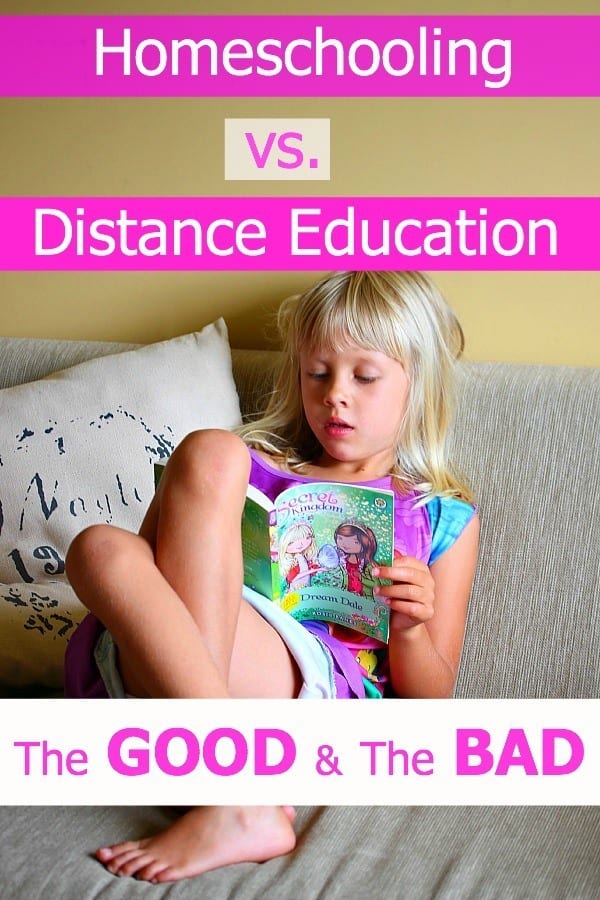
What are your experiences with homeschooling or distance education? Do you have any tips or resources to share?
Thanks for putting all this together, Caz. We do not have any experience with home schooling or distant education, but it’s great to know the options. And me, as a former teacher, yes, I can absolutely sympathise with you 🙂
Cheers!
Have you gone insane yet? LOL I saw it on the horizon for me so had to get out of teaching as quick as I could. Now it looks as if Kalyra might send me back on the path 😉
Ahaha, if talking to your friends, partner and parents as if they were your students, trying to explain them EVERYTHING and talking to all people around as if they were ‘idiots’ who don’t understand anything, then… I guess yes, I was might have crossed the line 🙂
But I do believe I’m on my best way to recover, I’m on the road 🙂
I love reading things like this. Having children is a long way off for me yet, but I have this little worry in the back of my mind that I’m never going to be able to pursue my passion for travel and have children too, or that I need to visit every country in the next two years before I start settling down. It’s really inspiring to hear about people like yourself that are balancing travel and children, and it sounds like you’re doing a great job of it!
I always have that frantic worry that time is going to run out before I see and do everything. We have more time than we think. You can definitely make it work with kids, it will be different, but very doable and worthwhile. We’re so glad we can help people to see this as we feel it is so valuable for family bonding
I have never heard of distance education before. Interesting to here about. I will be home school my son next year. We are doing preschool now so I have gotten a little bit of practice.
Good luck with homeschooling your boy! You’ll enjoy it, it’s a treat to see how they think and learn
Wow! I had no idea about distance education! That’s really awesome!
It is really cool! We’re lucky our country is so vast else the opportunity probably wouldn’t be there
Oh wow you touched a nerve, if you think you cop flack for taking the kids around Australia you should have heard what we got taking our kids out of school in Australia and to a tiny village school in the mountains of Italy. They went from a school with 600 students to a school with 60, no special unit (our nine year old son Luca has high functioning Autism and still isn’t able to read although he’s making progress with reading eggs all of a sudden it seems a light was switched on). Just before finishing up the school year in Queensland I asked one of Luca’s special unit teachers how he was going and her response was ‘He’s going steadily backwards’…..both kids didn’t start school in Italy till last September as we missed the enrollment to get them in for June. They had almost nine months away from school.
I’m so glad that we went ahead with our dream and our kids are thriving here, Carina is already fluent and Luca loves his school and is picking up Italian although not anything written. It is such a minefield when talking about homeschooling, distance education and even unschooling. I have stopped worrying so much and yes agree about the madness of some of the things they have to learn at school, our experience here has given them so much more than a ‘normal’ school environment could and this year we plan to travel. Our son has special needs with his learning and I constantly look for ways to teach him without it being a formal lesson. He is amazing. Sorry got a bit carried away, you guys look like you are doing a fantastic job and I am laughing that it isn’t any easier for you even though you were a teacher lol xx
ciao lisa x
Lisa I hope you’ve sent that teacher in Queensland a special note to let her know how well your son is doing!! I hate how schools put labels on kids based upon the inadequacies of an outdated educational system. I can only see how your lifestyle and choices are enhancing your children’s life, especially Luca! It’s so inspirational, Thank you for sharing.
Lisa, stories like yours help bolster my courage to keep going with our plans to take ours to SE Asia – a lot of people get really freaked out as soon as you do something unusual like that when you have little ones to raise. It sounds like your kids are doing really well though – music to my ears!
This all sounds like so much work … my hat goes off to you!
Hi Caz! Great article, and just the kind of info I’ve been looking for!
” I get frustrated with the education system for wasting my daughter’s time filling her head with cloud labels like cumulonimbus and altostratus instead of teaching her to use her five senses to know when rain is coming, how to make a decision, how to get along with others, how to manage money, find peace within herself so she can manage uncertainty. You get my drift and you can see where this rant is going!”
I soooo agree with you on this – I vaguely remember having to waste time learning that stuff in elementary school, along with other useless facts like the various layers that make up the earth’s crust, none of which I remember now at age 37 (nor do I have a need to!) Seems to me it’s much better to focus on the things they need to know to survive and thrive in modern society (reading, writing, math, social skills, manners, common sense, decision making skills, patience, planning etc.), and leave the random facts stuff for organic learning.
Granted, if they want to go to university someday, they’ll eventually have to study some basic sciences, more advanced math (compared to what we need to know in everyday life)… but surely that stuff can wait until at least grade 7 or so.
We leave on July 1st for a year of travel in SE Asia, so we’ll be homeschooling our kids. One thing I still haven’t found is a learn to read program that I like – Reading Eggs looks really promising though!
On their website they mention that there are also book packs – by any chance do you know if you can/should do the program without them? or will that dilute its effectiveness too much… just thinking of logistics since if the book packs are recommended, I’d want to get them shipped to us before we leave.
Sheralyn – we live in the Maldives and have the book packs for the Reading Eggs programme. Although they are a repeat of the books at the end of each lesson, I think that the kids have been enjoying having something they can then touch, carry around, put in their bookshelf and read for themselves. I also bought the workbooks which I don’t think were useful for my daughter (now 6) as she has had school as well, but for my DS4 if we go more remote later this year, I’ll be grateful for them. I bought the flashcards too but once again I think they’ll be more useful with my son.
Hi Caz,
Thanks for all the insight on education on the road. I agree with you that kids need structure and discipline in order to learn constructively. But in order for distance education and/or homeschooling to work efficiently, the parents need to be even more structured and disciplined than the kids. I think this is the biggest hurdle for parents, at least for me, in making the jump from traditional classroom settings to distance learning.
Thanks for sharing your experience on this! Would love to see more future posts on your approach to education, especially with your teaching background.
Thanks for some great info on what a trip around australia with kids can look like. One question- with the school you’re going through do you need to wait in certain places for school work to arrive via post before moving on? I’ve read this can be an issue with distance ed. Ta
We do have to receive a package in the post each month. So far we haven’t had any problems giving them a forwarding address of our accommodation.
Hi I found your article on Pintrest and found it excellent, we are about to start the progress of distance education as our daughter is going backwards at school. She has Autism and both her OT and Psychologist advised us to take her out of school as she isn’t interacting at all with the other students or the teachers or teachers aide she hates it. So distance education here we come, I don’t doubt it will be a battle but anything has got to be better than her not learning anything at all.
Hi Caz – love your post! It has been so helpful in reinforcing for me that distance education rather than homeschooling will be the way for us if our circumstances take us to a more remote location. Like you, despite having been a teacher (but loved it – adolescents, so a different kettle of fish to teaching primary – I have so much respect for primary teachers, I just couldn’t do it (my kids are 6 and 4)) I think that I’d much rather facilitate the learning than have homeschooling take over my entire existence. We already live on a small island, so the feeling of being physically trapped is enough! Being shackled to lesson planning and resource gathering for the basics is too much. I’d like to supplement with LOTE as well, so I will happily do that myself. Sanity time and being able to separate our “life” from “school” will be the keys for us, I think. Thank you!
When I was 12 and moved to Bali, we started distance ed straight away, and to be honest, I LOVED IT. Finally I could just get down to the learning without what I considered to be the useless distractions of being in school. Admittedly, I was badly bullied, but distance ed meant I became a lot more confident in myself, as I didn’t have people putting me down all the time. I loved it so much, that I went on to do university the same way, and got my degree online. All in all, awesome.
Although, I do with that my parents had the time to do homeschooling so I could have had more freedom in what I studied. I’m really not a big fan of a lot of sections of the Australian curriculum, and find it more politically motivated than useful for kids (prime example, I’m university educated and have no idea how to do my own taxes). I’m definitely looking at the possibilities of homeschooling when I decide to have kids myself.
Thanks for the tips and ideas guys! I’m so impressed that you’re travelling and schooling at the same time. It’s a rewarding challenge I imagine!
REally loved hearing your experiences Oceana. It just verifies for me how ineffective the education system can be and how it can really negatively impact children. It’s why I got out of teaching, I saw myself doing more harm than good. It breaks my heart to hear of students being bullied and I’m so sorry you went through that. But, look at your life now. Success is always the best revenge!
I was just wondering – what happens if you (as in the parent and the child) don’t finish the work in the two week period? We’re looking at doing the big Aussie road trip and it will mean distance ed for my grade 4 and grade 2 girls. I don’t fancy the idea of revolving the whole day around their formal schooling so I’m just wondering what the ramifications are if they don’t get it all done.
I have been investigating this. There have been some tasks I’ve not handed back simply because I could not get them done. There’s not been a problem. I wouldn’t think there would be as a former teacher I can tell you it was rare to get your whole class to finish every task. Some kids hardly ever completed anything. They always went on to the next grade.
But, I did speak to someone who had done a bit of research and learned from other homeschoolers and distant ed people that you can just fail your child. It sounds scarier than what it is, but apparently if you don’t send back the work (and that would be the whole unit of work) then the teacher will just fail the child in that subject, but it won’t mean they’ll be held back a year when they return. I don’t know how accurate that is, but it’s worth looking more into. I think if you make a good effort and regularly hand the work back, it won;t be a problem if there are some things you couldn’t complete.
As a former teacher, I recommend you focus on the reading, writing and maths and don’t worry so much if you don’t get the other stuff done.
So happy I found your post! We are considering making a move to Bali for a year or 2 while hubby is doing fifo work. My daughter will be in grade 5 next year and my son in grade 2. I have the option of sending them to international schools which are around 10k per child (happy to pay if best option) or dept of education said I am eligible to put them through distance education. They didn’t really explain how it all works other than spending 3-4 hours a day supervising them do there workbooks, guide them through there work and that a lot of it is done online. Is this correct? They did tell me the kids won’t fail as they teacher monitors there work. Being a teacher yourself any thought on wether to go the social school side or distance ed? There are lots of activities kids can do there to make friends so I have been told and there is a distance education group they can go to once a week for a fee ran by aust teachers. Based on my kids year levels am I guiding and teaching them for the whole 4 hours or supervising and making sure they do the work? Am a little confused by it all – look forward to your reply
I guess it depends on the kids age, but we don’t do much of the work online. It’s mostly pen and paper. They give you the lesson and unit guides and you’re teaching it. IT depends on how much of an independent learner your child is but you’ll be a lot more involved than you think. It’s really challenging for us but its because we are constantly moving and out exploring every day. If you’re based in Bali and living there, it will be more manageable. IT doesn’t take us 4 hours though- more like two. But again, it really depends on your child.
It’s easy as everything is done for you, you just have to step in and teach it, or supervise. But teaching your own children can be challenge. The majority of my teaching was with challenging children – but I think I struggle more teaching my own child. It’s tough.
If your child is going to have the social side in your own life, I wouldn’t worry too much about them missing out on this if they don’t go to school. There are some good and bad things to the school social stuff so it’s not always the best choice. Some kids can be damaged for life because of the school social aspect!!
I’d try the distance ed first and see how you feel. You can always send them to the international school at a later date, if it’s not working.
Distance education has become much popular in these days among working people , willing to pursue higher education. These courses help people to grow their career.
this will create a lost generation. we must follow the traditional schooling. its better u know.
I respectfully disagree
I found the lack of spelling and grammar here much more disturbing then a ‘lost generation’.. traditional schooling fail?
Don’t tell me you’re American and aren’t aware that British English has different spelling and grammar rules. In Australia, we use the original English conventions.
Hi Caz, I used to think home schooling or distance ed was for people who tended to want to opt out of the mainstream and wondered how kids did socially… but am soon to join the world of distance education! Yeah.
Thanks for the extra tips and advice on your post!
We are heading to the UK for 12 months or so and the last thing I want to do is put the girls into school as it would take way the spontaneity and excitement of the trip. We will Distance Ed and be free to slot in escapes! Really looking forward to it and will get the girls doing their blogging!
Happy, safe travels around Oz all of you!
Fantastic article! I’m looking at home schooling our daughter when the time comes, but I like the idea of having something structured like distance education. Do you know if you can do distance education while having a fixed address in a metropolitan area?
I’m not too sure about that one Kristy. I think you can only do it if there is a reason you can’t get to a local school. But, I would check that just in case.
Hi, interesting article. Question if I may. Where did you get the awesome pencil/marker set in the very first picture ? What brand is it ? Thanks
We are just planning a long 6 month family adventure with our 3 younger children ages 10, 6, and 3 yrs old. Your blog has tons of info that I have soaked up!! Loving it. We have already heard the, “you’re doing what? What about school and money? questions. lol
I love your blog layout. I have started a basic blog because I super new at it, but hope to expand to a template something like yours eventually. 🙂
Ok, now Im going to go read more on your blog. Cheers!
I have never known about separation instruction. Fascinating to here about. I will be self-teach my child one year from now. We are doing preschool now so I have gotten a tiny bit of practice.
Thank you so much Caz 🙂 What I love most about this is hearing it from a teachers perspective. Anything I was worried about has now been reduced from your fantastic write up. Thank you 🙂
You’re welcome Kate! I have a follow up post about homeschooling coming out at the end of the week. Stay tuned. If you’re not on our family travel email list, you can join here so you don’t miss the update https://www.ytravelblog.com/welcome/family-travel . We’ve free travel planning toolkit that comes with it.
Interesting Blog. Thanx for sharing
Thank you for all the info, we are looking at travelling Australia next year and are planning ahead. Great page! I will definitely keep this link moving forward.
Hey Caz, I never thought I will fall in love with your family trips pictures and videos. Congrats…
Thank you for writing this amazing blog. I got a plenty of information about distance education and its benefits.
Great blog Caz!!! Thank you for sharing such wonderful information about distance education. And I really like your trip pictures.
I’ve never thought this much about distance education before. Great article Caz!!!
Glad it could help you
Great Blog!!! Thanks for sharing such a great blog with us!! I am Ashley Wright I am a mother of two and I have been homeschooling my children for 6 years and it is the great journey, but recently Imy son has started his Online High Schooling which is a kind of distance learning. I was worried earlier but as my son is progressing and the way he has improved in his curriculum has made me proud.
That’s great to hear. Thank you for sharing. I’ve been hearing a lot about the online learning lately. It sounds great
hi my daughter also likes to get things perfect and struggles with making mistakes and feedback. could you expand on this and do you have any photos of your benchmarks and rewards or feedback charts etc. thanks!!